Vaper's Tongue and Taste Buds: The Impact of Vaping
Key Takeaways
| Aspect | Details |
|---|---|
| Vaper's Tongue | Temporary loss of taste, medically termed as ageusia or hypogeusia. |
| Taste Bud Desensitization | Overexposure to intense e-juice flavors can diminish the ability to perceive tastes. |
| Saliva Production | Crucial for taste perception, it can be reduced by vaping, affecting the ability to taste. |
| Sensory Fatigue | Constant exposure to the same flavors can cause the brain to become less responsive, exacerbating vaper’s tongue. |
| Impact of Smoking Cessation | Quitting smoking can lead to hypersensitive taste buds, intensifying the experience of vaping flavors. |
| Recovery and Prevention | Strategies include moderating vaping, staying hydrated, rotating e-juice flavors, and maintaining oral hygiene. |
| Long-Term Effects | The long-term impact of vaping on taste is not fully understood and requires more research. |
Introduction
Vaper's Tongue, a term often used in the vaping community, refers to a temporary loss of taste sensation, known medically as ageusia or hypogeusia. This condition, still a subject of extensive research, appears to be influenced by a combination of factors. It's particularly challenging for vapers who treasure the rich array of flavors offered by different e-juices. In this comprehensive discussion, we aim to explore the underlying reasons behind vaper’s tongue, examine its effects on the function of taste buds and saliva production, provide actionable tips for recovering taste, and discuss the long-term impacts on the sense of taste.
Understanding How Taste Buds Work
At the very foundation of our taste perception are the taste buds. Each of these small sensory organs contains between 50 and 150 receptor cells responsible for detecting various flavor compounds such as sweet, sour, salty, bitter, and umami. When we consume food or engage in vaping, these compounds interact with the receptor cells, sending taste and aroma signals to the brain. The role of saliva is indispensable in this process, as it dissolves and carries the flavors to the taste buds. The flavor experience is further enriched by the sense of smell, with receptors in the nasal passage contributing to our overall perception of flavor.

Investigating the Causes of Vaper’s Tongue
The Issue of Desensitized Taste Buds
One of the primary concerns in the development of vaper’s tongue is the desensitization of taste buds. This can occur when these sensory receptors are exposed to excessive flavor concentrations, particularly common in certain e-liquids. Such overexposure can result in a reduced ability to perceive tastes, impacting the overall vaping experience.
The Effect on Saliva Production
Vape liquids, predominantly made up of propylene glycol (PG) and vegetable glycerin (VG), possess hygroscopic properties, meaning they absorb moisture. This can lead to a dry mouth effect, subsequently reducing saliva production. Given the critical role of saliva in taste perception – primarily in dissolving and transporting flavor particles – this reduction can significantly impair the ability to taste.
The Phenomenon of Sensory Fatigue
Another factor contributing to vaper’s tongue is sensory fatigue. This occurs when the brain becomes less responsive to familiar tastes due to constant exposure. This effect can worsen the desensitization of taste buds, leading to a more severe case of vaper’s tongue.
Changes Following Smoking Cessation
For individuals transitioning from smoking to vaping, the recovery and heightened sensitivity of taste buds post-smoking cessation can be overwhelming, particularly when exposed to the potent flavors in vaping.

Strategies for Recovery and Prevention
A variety of approaches can be employed to mitigate the effects of taste bud desensitization and to maintain a moist oral environment:
- Moderate Vaping: Reducing the frequency of vaping sessions allows taste buds to rest and recover.
- Hydration: Drinking adequate water and avoiding diuretics like coffee helps in maintaining healthy saliva levels.
- Oral Hygiene: Regular use of mouthwash can remove residual e-liquid substances from the taste buds.
- Dietary Variety: Incorporating a range of strongly flavored foods can encourage the growth of new taste buds.
- Flavor Rotation: Regularly changing e-juice flavors can help prevent sensory fatigue.
- Sweetener Awareness: Many e-liquids contain additional sweeteners that can numb taste receptors. Checking ingredients is advisable.
- Tongue Care: Gentle brushing of the tongue can remove dead cells, enhancing taste receptor function.
- Nicotine-Free Options: Vaping with just PG or VG can provide a break for taste buds from nicotine.
Zinc Supplementation:
Zinc is known to aid in the regeneration of taste buds and improve salivary gland function.

Long-Term Effects on Taste
The Ongoing Debate on Vaping's Impact
The long-term effects of vaping on taste are not yet fully determined. While studies on long-term smokers show a significant decrease in taste sensitivity, it is unclear if these findings directly translate to vaping, which involves aerosolizing liquids rather than burning.
Potential Risks and Benefits
Certain studies have raised concerns about the long-term effects of some e-liquid flavorings, such as cinnamaldehyde. However, preliminary research suggests that switching from smoking to vaping may not lead to further taste degradation and might even enhance the ability to perceive flavors. These findings, though promising, require further investigation.
The Need for Comprehensive Research
With a growing number of adults taking up vaping, in-depth research into its impact on taste is critical. The diverse factors unique to vaping, such as battery voltage, juice flavors, sweeteners, and nicotine strength, necessitate specific studies distinct from traditional tobacco research.
Vaper’s tongue, while a temporary condition, can disrupt the enjoyment of the wide range of flavors available in e-juices. Recognizing its causes and adopting effective prevention and recovery strategies are essential for a fulfilling vaping experience. The long-term effects of vaping on taste buds are an area that requires further scientific study. Adapting vaping habits in response to changes in taste sensation is crucial for vapers who wish to continue enjoying the evolving variety of e-juice flavors. As research continues to advance, it will provide more definitive guidance for the vaping community on how to maintain optimal taste health.


Sense Hero
Sense Hero mouth Spray UK: Quick Fix for Dryness, Vapers Tongue and Palate Cleansing
View full details


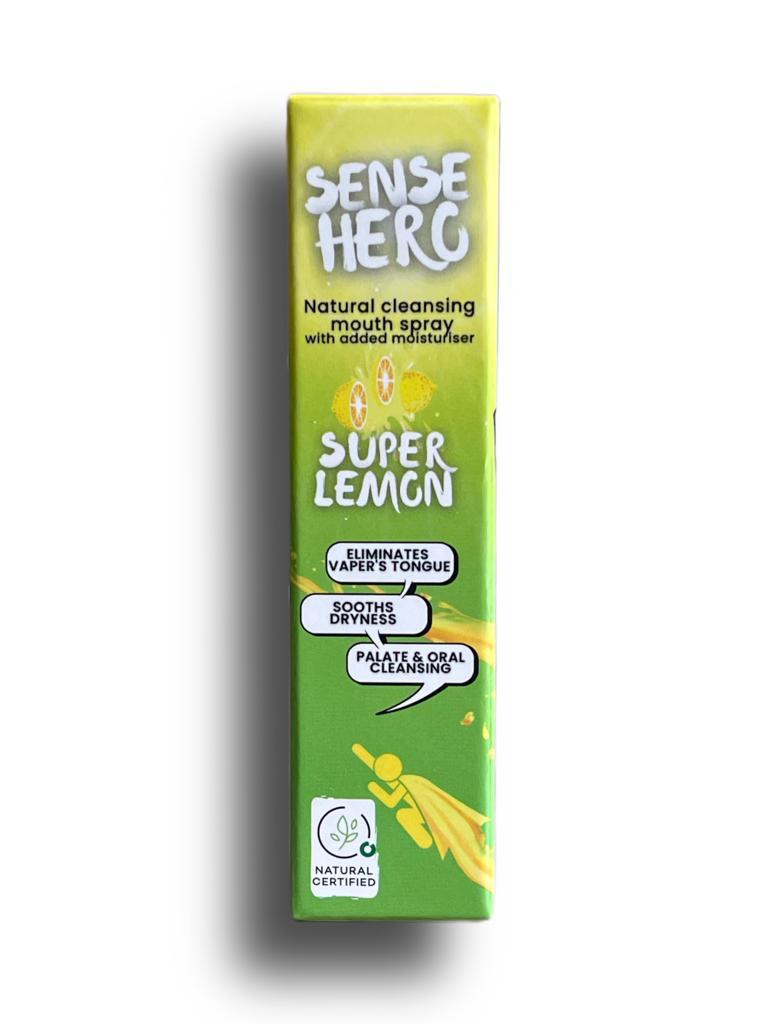

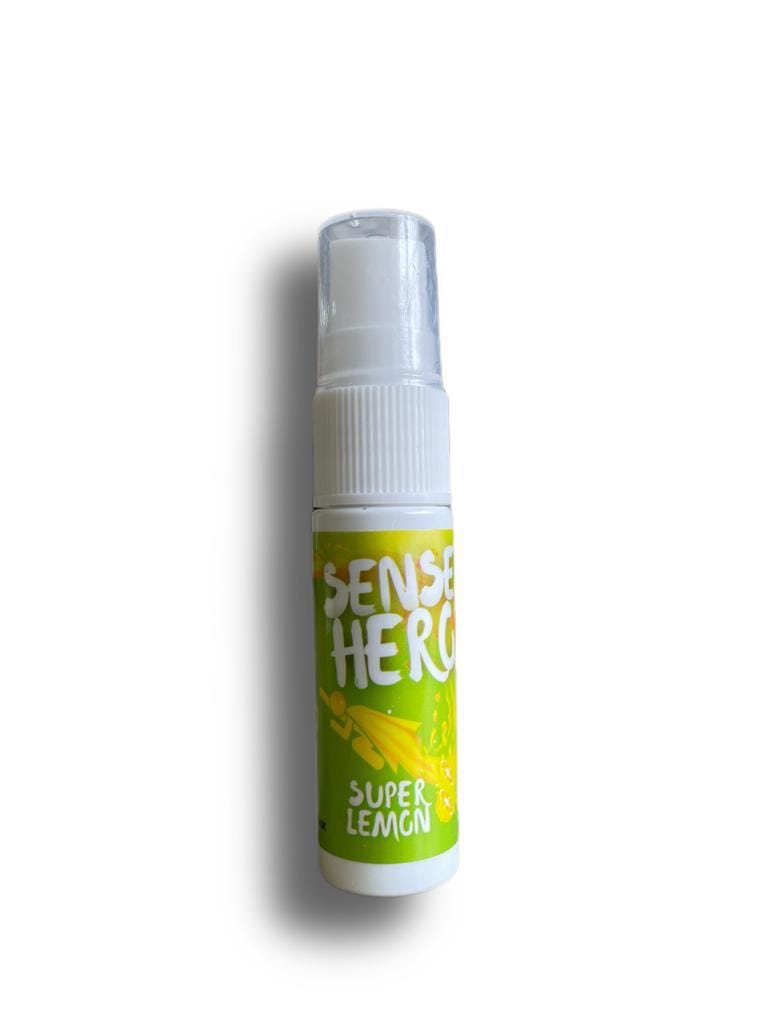
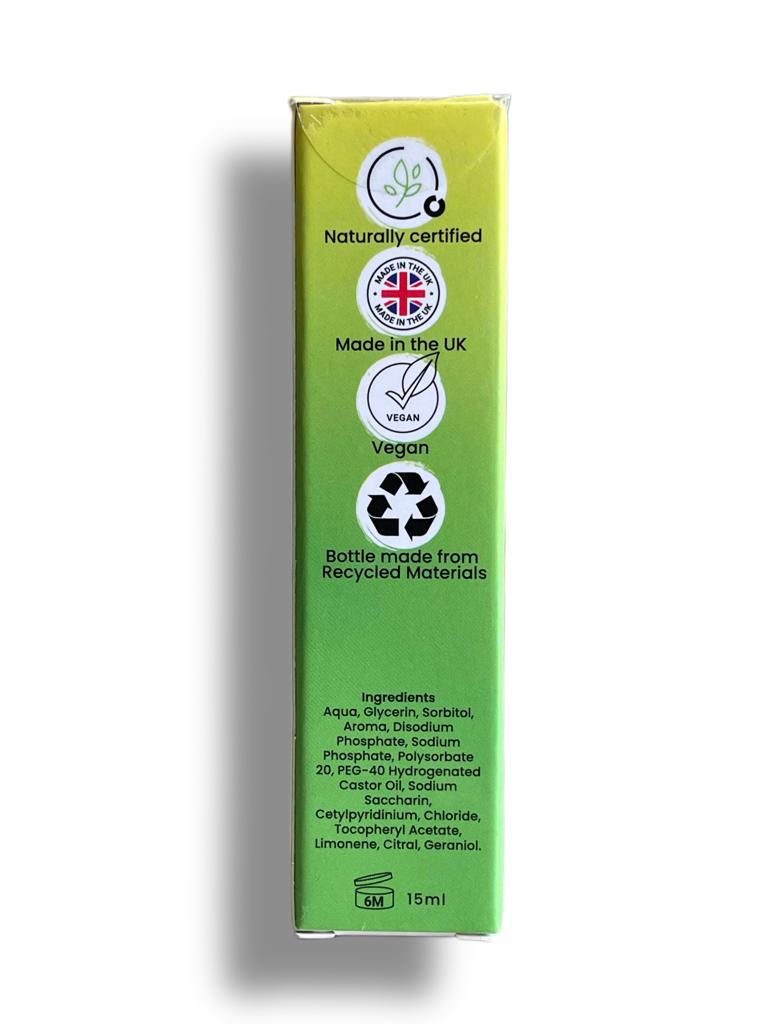

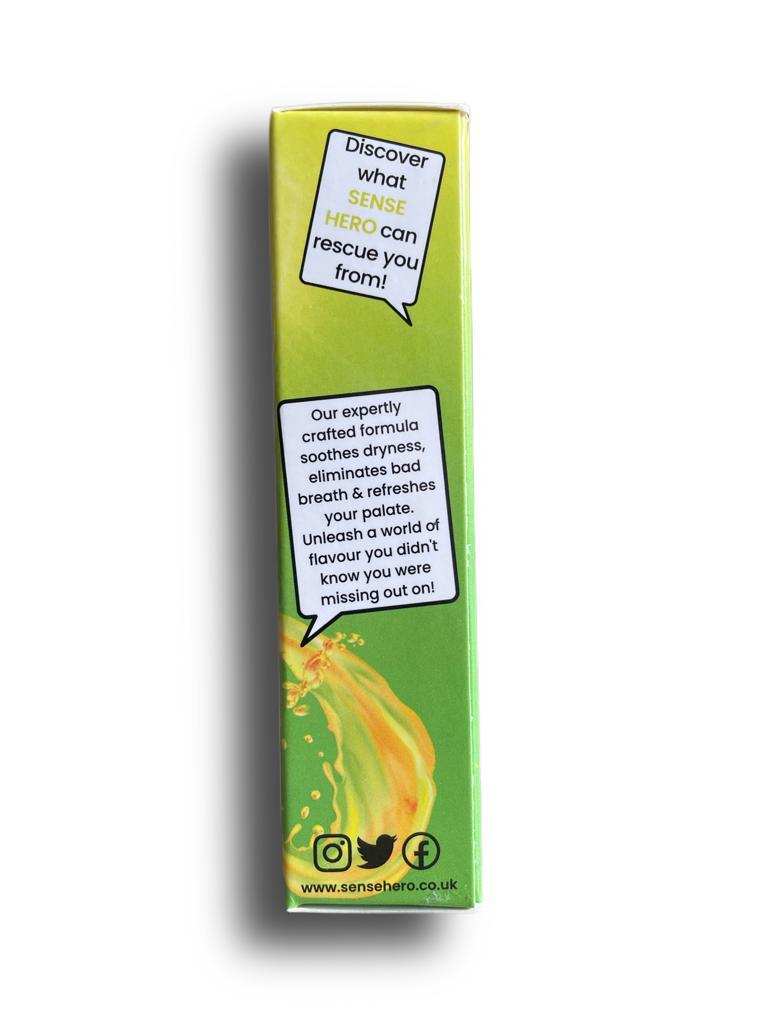
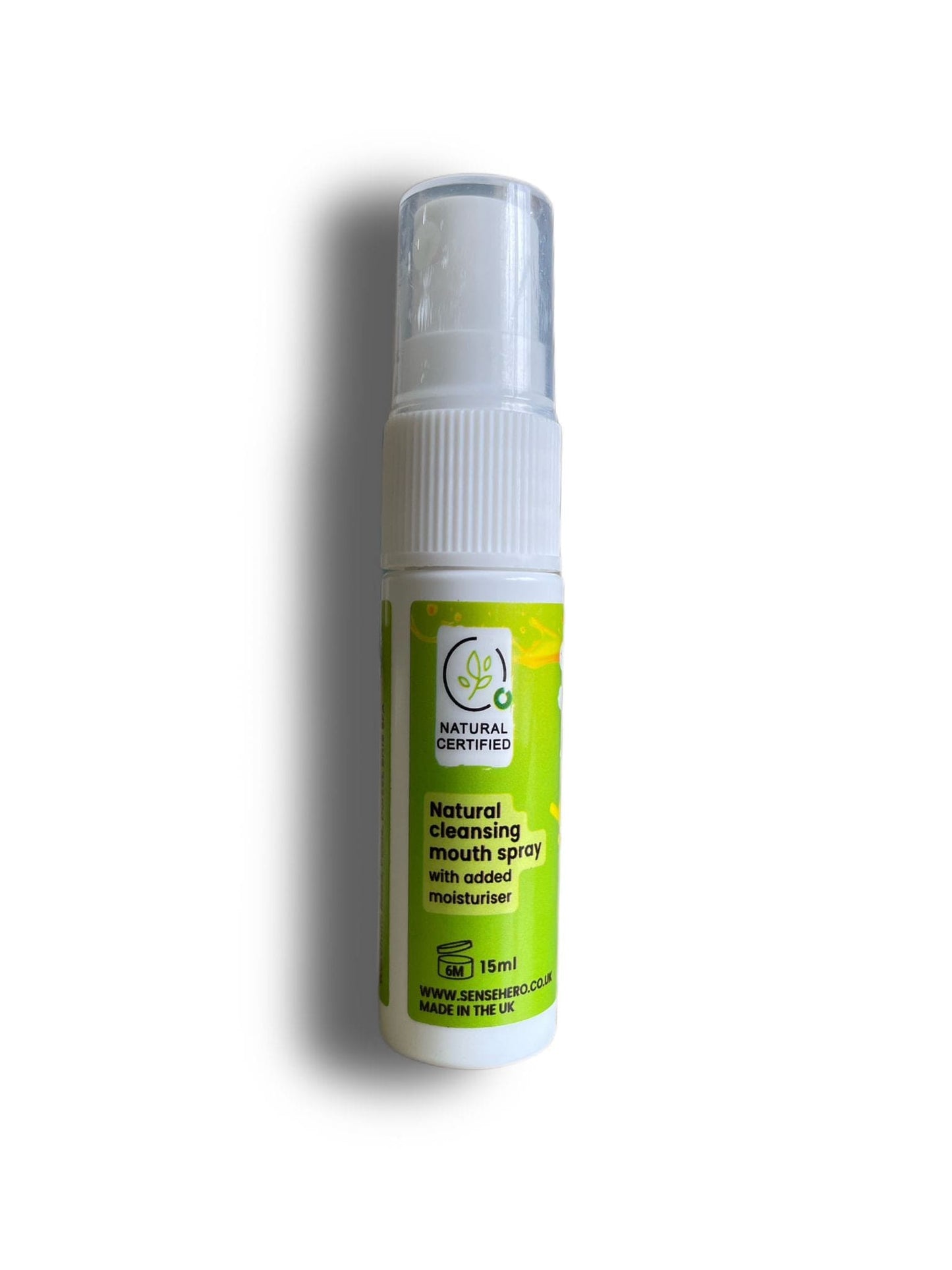

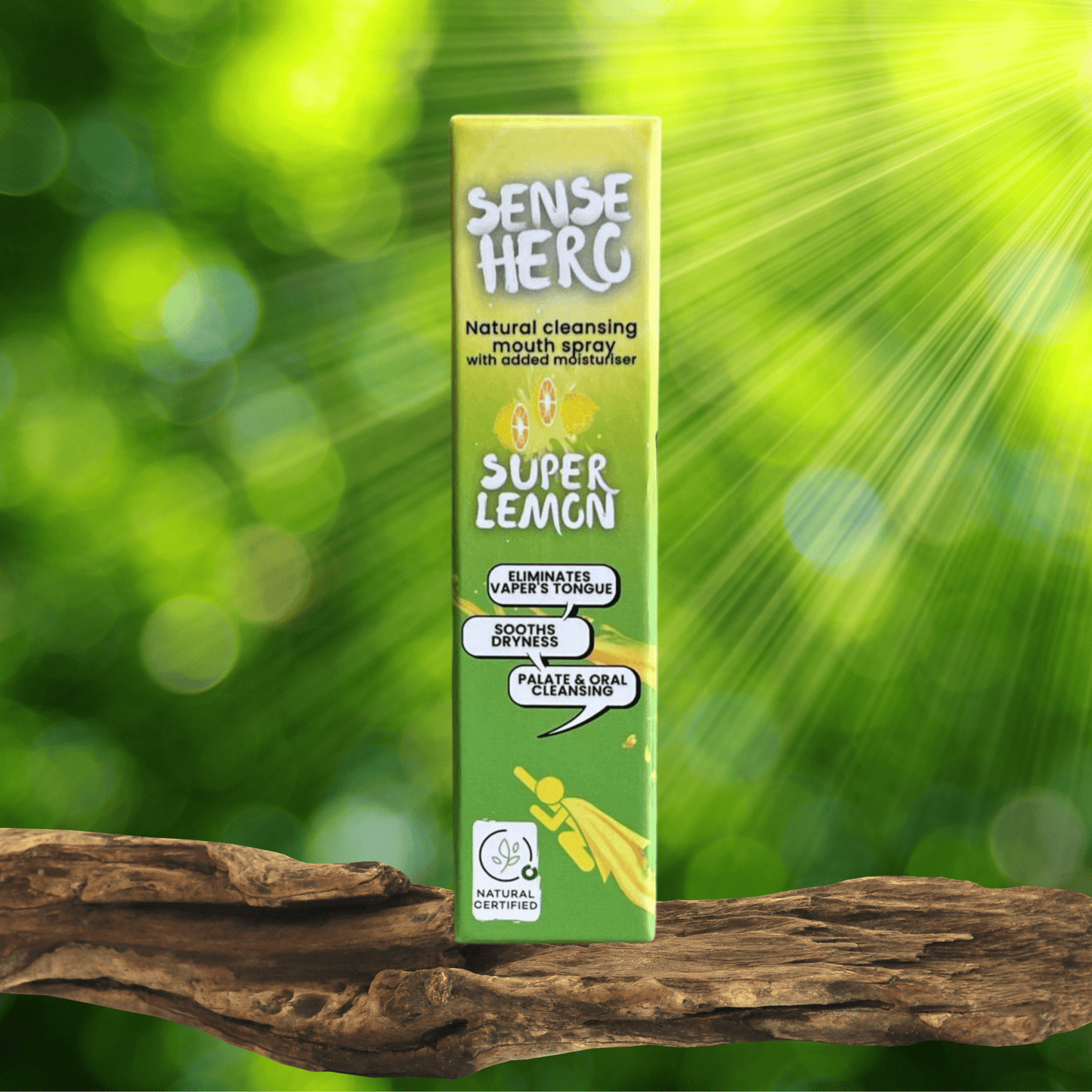
Sense Hero spray is not a medicinal product and is not intended to diagnose, treat, cure, or prevent any disease. Sense Hero Spray is designed for personal comfort.


